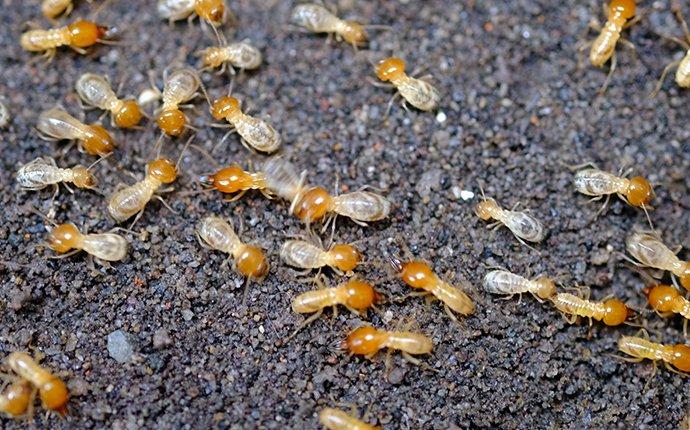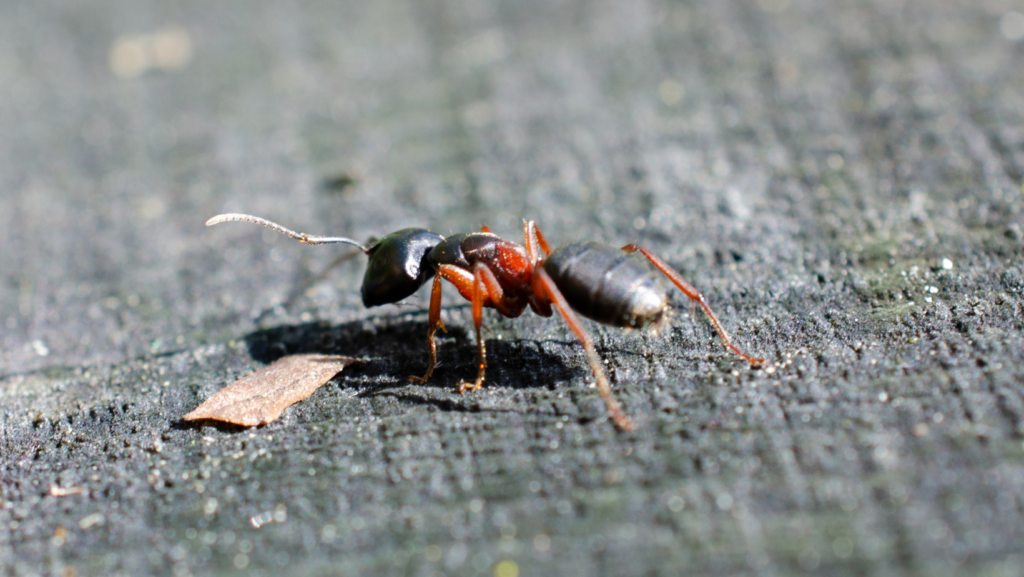Professional Ant Control Services: Customized Therapies for Long Lasting Outcomes
Professional Ant Control Services: Customized Therapies for Long Lasting Outcomes
Blog Article
Environmental Impact of Insect Control: Harmonizing Effectiveness With Sustainability
The environmental influence of insect control is a vital problem that needs a fragile balance between attaining efficiency in handling bugs and making sure sustainability of our communities. As we aim to secure our crops, homes, and wellness from the risks presented by bugs, the techniques we use can unintentionally hurt the atmosphere. From making use of unsafe chemicals that leak right into our dirt and water to the unexpected effects on non-target varieties, the consequences of standard bug control techniques are significant. Nonetheless, there are arising methods that provide expect a more lasting method to pest monitoring. These remedies not just purpose to resolve the prompt insect troubles yet likewise consider the long-term wellness of our earth.
Unsafe Chemicals in Parasite Control
The utilization of damaging chemicals in parasite control poses considerable ecological and wellness risks that necessitate cautious consideration and reduction techniques. Pesticides, herbicides, and insecticides are frequently utilized to eliminate insects, yet their extensive application can result in unintentional repercussions. These chemicals can infect dirt, water sources, and the air, influencing not only the targeted parasites yet likewise valuable pests, wild animals, and human beings.

To deal with these threats, integrated bug monitoring (IPM) methods are being advertised as an extra lasting choice. IPM entails a mix of approaches such as biological control, habitat control, and the targeted use of chemicals as a last resource (ant control cornelius nc). By adopting a holistic strategy to pest control, we can decrease the ecological and wellness effects related to harmful chemicals while efficiently handling pest populations
Influence on Non-Target Species
Taking into consideration the unexpected effects of bug control methods, the influence on non-target types is a crucial element that needs extensive examination. While bug control measures aim to target particular parasites, various other microorganisms in the community may be inadvertently affected. Non-target varieties, including advantageous insects, birds, creatures, and also plants, can suffer indirect or straight harm from pesticide applications or organic control methods.
Pesticides created to fight a certain insect parasite may harm pollinators like bees or all-natural killers such as ladybugs. Organic control agents, if not species-specific, can present risks to unexpected targets, disrupting the ecological balance.
To alleviate the effect on non-target types, incorporated bug monitoring (IPM) approaches that stress an all natural strategy to pest control are suggested. These techniques focus on making use of ecologically pleasant practices, lessening injury to beneficial microorganisms while successfully handling pest populaces. Performing extensive threat assessments and checking the results of parasite control efforts are vital steps in safeguarding non-target varieties and promoting total ecological community health and wellness.
Soil and Water Contamination
Unexpected ecological effects of parasite control techniques prolong beyond impacting non-target species, with significant implications for dirt and water contamination. Pesticides, herbicides, and chemical plant foods made use of in bug control can leach right into the dirt and infect groundwater, posturing a threat to both terrestrial and water ecosystems. Soil contamination can disrupt the balance of microbes essential for nutrition biking and plant development, leading to lowered soil fertility and performance. Additionally, these chemicals can persist in the atmosphere for prolonged durations, collecting in the soil and potentially entering the food web.
Water contamination is an additional vital concern associated with parasite control methods. To minimize dirt and water contamination from pest control activities, integrated pest administration techniques that prioritize sustainability and decrease chemical inputs are important.
Air Air Pollution From Chemical Usage
Direct exposure to airborne pesticides during farming applications postures a substantial concern for air contamination control procedures. They can volatilize into the air and form unpredictable organic substances (VOCs) and various other airborne contaminants when chemicals are splashed onto plants - termite control services. These chemicals can add to the development of ground-level ozone, a significant component of smog that can have destructive impacts on human health, crop productivity, and general air high quality. Furthermore, chemical drift, where pesticides are lugged by the wind to unintended areas, can cause the contamination of nearby environments and water bodies.

Approaches for Lasting Bug Control
In the realm of agricultural techniques, executing sustainable parasite control approaches is critical for keeping eco-friendly balance and guarding plant yields. Lasting pest control stresses using eco-friendly techniques to handle pest populaces efficiently while minimizing damage to non-target organisms and ecological communities. Integrated Pest Management (IPM) is a commonly taken on approach that combines organic, cultural, physical, and chemical control techniques to attain lasting insect management services.
One secret method in lasting bug control is advertising biodiversity within agroecosystems. By enhancing natural enemies of insects, such as predators and parasitoids, farmers can decrease the need for synthetic pesticides. Plant turning and diversity are additionally reliable methods to interrupt pest life cycles and produce much less beneficial conditions for pests to prosper. Furthermore, utilizing pest-resistant crop ranges and utilizing methods like trap cropping can help in reducing insect stress without depending heavily on chemical interventions. Inevitably, by incorporating these sustainable bug control approaches, farmers can attain an equilibrium between pest management effectiveness and environmental stewardship.
Final Thought
Finally, the ecological effect of bug control techniques have to be carefully considered to balance efficiency with blog sustainability. Damaging chemicals utilized in parasite control can bring about dirt and water contamination, air contamination, and harm non-target species - termite control services. It is crucial to execute sustainable bug control techniques to minimize these negative results on the setting and promote a healthier ecosystem for future generations
By taking on a holistic method to pest control, we can lessen the ecological and health and wellness impacts associated with damaging chemicals while efficiently managing pest populations.

To minimize the air pollution created by chemical use, it is important to embrace integrated bug administration strategies that focus on the use of non-chemical pest control techniques, such as plant turning, all-natural predators, and immune plant selections. Sustainable pest control emphasizes the use of eco friendly approaches to take care of parasite populations successfully while minimizing injury to non-target organisms and environments. Integrated Bug Monitoring (IPM) is a commonly adopted approach that combines organic, cultural, physical, and chemical control techniques to achieve long-lasting bug management services.
Report this page